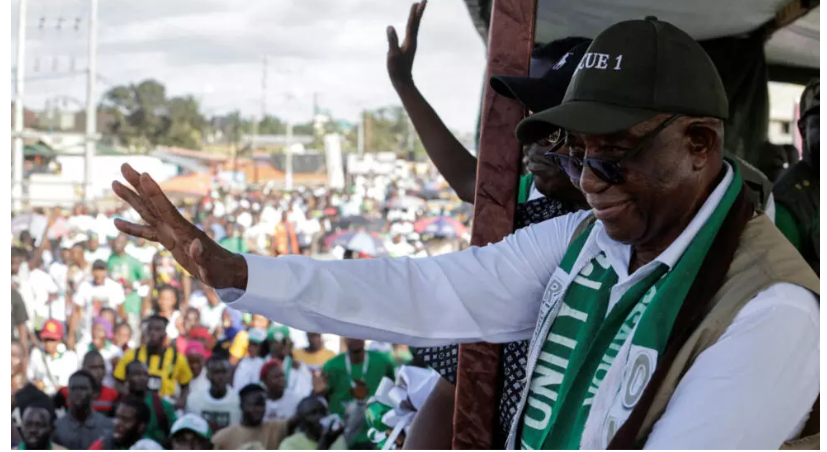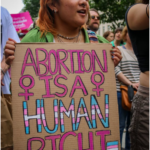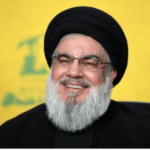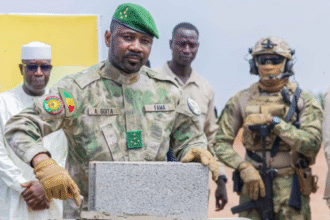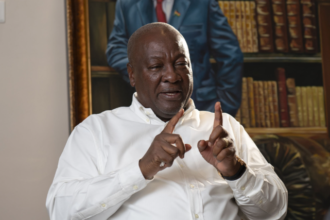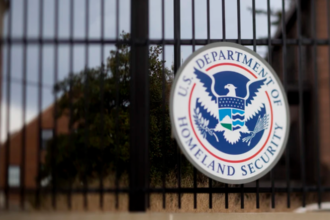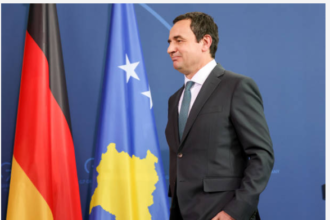By Amara Quardu Mohammed Kamara
The 2023 elections open a new chapter in Liberia’s democratic journey. However, the new government faces myriad socio-economic challenges and opportunities that require urgent attention and innovative solutions. This policy brief assesses the post-election landscape, offering insights into key challenges and opportunities to strengthen Liberia’s economic mechanisms and foster socio-economic development.
Overview of Post-Election Environment
Scholars, policymakers, and global governance experts agree that elections are fundamental to democracy. As a mechanism for participatory governance and civic engagement, elections bring hope, allowing citizens and their leaders to work through promises and aspirations while navigating obstacles and pitfalls. In Liberia, a mix of optimism, challenges, and a collective eagerness for progress characterizes the post-election environment. Following the election of President Joseph Nyuma Boakai, there is a palpable sense of anticipation for positive change and a renewed commitment to democratic values. So, what do the 2023 elections mean for Liberia? What obstacles and opportunities are on the horizon?
According to Anger Brandt (2018), elections are a fundamental and pivotal aspect of the democratic process, serving as the essence of democracy. The evaluation of democracy and its path toward consolidation frequently begins with scrutinizing the electoral process. This underscores that elections serve as a democratic instrument, shaping citizens' views, promoting civic participation, and influencing their confidence in the political system, which, in turn, affects public policy mechanisms.
The citizens, having exercised their democratic right, now look to the elected leadership to translate campaign promises into tangible actions that improve their daily lives. In the aftermath of Liberia’s recent elections, a critical issue emerges as the nation grapples with fostering economic development while advancing toward a sustainable democracy. As Liberia navigates this post-election period, there is a crucial focus on fostering unity, promoting transparency, and implementing policies that advance the nation toward sustainable development. The international community, too, observes with interest, ready to support Liberia’s efforts to build a stable, prosperous, and inclusive future. Can the UP-led government translate the hopes and aspirations of the Liberian people into reality?
Importance of Economic Development in National Progress
Economic development is a cornerstone for Liberia’s national progress, which is pivotal in fostering sustainable growth and prosperity. Its significance transcends fiscal metrics, intricately linked to social stability, poverty alleviation, and the overall well-being of citizens. A robust and diversified economy not only generates employment and entrepreneurship opportunities but also empowers individuals and communities. Over the years, Liberia has employed various economic development frameworks, including Vision 2024, the Poverty Reduction Strategy, the Agenda for Transformation, and the Pro-poor Agenda for Prosperity and Development, to gauge progress. Given historical challenges, sustained economic development catalyzes positive change, attracting investments, enhancing infrastructure, and promoting key sectors. By harnessing its resources and human capital, Liberia can shape a resilient and self-reliant nation, making economic development a key driver in pursuing a more equitable and prosperous society. What do we consider as development in the context of Liberia?
Current Economic Landscape
According to Bank, A. D. (2019), In 2022, the Liberian economy contracted, with GDP growth declining from 5.0% to 4.0%, influenced by growth in mining and construction, increased infrastructure spending, and the aftermath of Russia’s invasion of Ukraine, resulting in higher commodity prices and fiscal constraints. Despite a marginal improvement in inflation to 7.4%, the fiscal deficit expanded to 4.8% of GDP, up from 2.4% in 2021, driven by escalated expenditures on infrastructure and wages, leading to a concurrent rise in public debt to 54.6% of GDP by October 2022, signaling increased borrowing activities. However, GDP is projected to grow 4.3% in 2023 and 4.8% in 2024, driven by expansion in mining, services, and agriculture.
Given Liberia’s reliance on commodity exports, particularly rubber and iron ore, external market conditions also significantly influence its economic stability. The government’s policies regarding fiscal management, poverty reduction, and infrastructure development would further shape the country’s economic trajectory.
Identification of Strengths and Weaknesses
Liberia possesses strengths such as abundant natural resources, including timber and minerals, and strategic geographical positioning. However, challenges persist, including dependence on commodity exports, vulnerability to external market fluctuations, and an insufficiently diversified economy. Efforts to strengthen the agriculture sector, mining, and energy sectors, improve governance, and enhance education and healthcare systems are integral for sustained growth. Addressing issues related to corruption, improving the ease of doing business, and ensuring social inclusivity is essential for overcoming weaknesses and fostering a resilient and inclusive economic environment.
Policy Recommendations:
Participatory budgeting: In efforts to increase citizens’ participation in fiscal policy, the new administration should consider employing mechanisms for the participation of citizens during budget formation and development planning. This would further enhance and strengthen citizens by allowing them to engage in the budget allocation process directly. Participatory budgeting was first introduced in Brazil which has improved budget transparency and accountability in determining how public funds are economically utilized.
Robust and sustainable Microeconomic governance: To secure strong and sustainable economic governance, the new Administration should underscore the need for inclusive economic governance that would provide support to cross-cutting sectors of the economy and widen the tax revenues. Given that our tax effort is tied to local collection and, domestic investment through Domestic Resource Mobilization, both informal and formal sectors, including Lebanese, Indian, Fulani’s merchants, etc. are integral components of the Economic Management Team.
Use Local Model to Determine Economic Progress: Liberia should use a local model to determine economic progress because it allows for a more contextually relevant assessment, considering the unique socioeconomic factors and cultural dynamics specific to the country. This approach helps tailor economic policies and strategies to better address the needs and challenges of the local population, fostering sustainable development not to particularly rely on data and models used by international regimes like the World Bank, IMF, AfDB, etc.
Strengthening Infrastructure: Prioritize Road and Energy Infrastructure Projects
Liberia should prioritize road and energy infrastructure projects to enhance economic efficiency, promote inclusivity and lay the foundation for sustainable development. Investing in well-connected roads and energy infrastructure is crucial for facilitating the movement of goods, boosting accessibility to remote areas, and ensuring consistent access to electricity, thus powering industrial growth.
Diversifying Economic Sectors: Promote Agricultural Initiatives to Enhance Food Security
Liberia should diversify its economy by prioritizing agricultural initiatives to boost food security, create employment opportunities, and reduce dependency on external markets. Implementing modern farming techniques, supporting smallholder farmers, and investing in agribusinesses can transform the agricultural sector into a resilient and sustainable contributor to Liberia’s economy.
Support the Growth of Technology and Innovation Sectors:
To propel Liberia into the digital age, the country should nurture the technology and innovation sectors.
Encouraging startups, investing in research and development, and fostering a supportive regulatory environment can catalyze technological advancements, positioning Liberia as a hub for technology-driven solutions.
Investment Climate:
To enhance economic growth, Liberia should streamline regulatory processes to attract foreign investment by simplifying bureaucratic procedures, reducing red tape, and ensuring transparency; simultaneously, stimulating local economic activity necessitates the implementation of tailored incentives such as tax benefits, access to credit facilities, and support programs for indigenous businesses, fostering the growth of SMEs, job creation, economic resilience, and community development.
Human Capital Development:
Liberia should invest in education, from primary to tertiary levels, and establish vocational training programs to align the workforce with evolving industry demands, enhancing employability and fostering a skilled, adaptable workforce ready to contribute to various sectors. Also, Establishing the Liberia
Innovation Center is crucial to the sustainable economic development of Liberia. It aspires to cultivate a dynamic ecosystem fostering technological advancements, entrepreneurship, and collaborative research, thereby propelling Liberia into the forefront of innovation-driven economic growth.
Political Stability and Economic Growth:
To ensure a stable political environment, Liberia should adopt multifaceted strategies beyond periodic elections, strengthening democratic institutions for autonomy and transparency, while fostering open dialogue to promote inclusivity and prevent potential unrest.
Reimagine Liberia’s Foreign Policy Mechanism:
Reimagine Liberia’s foreign policy mechanism by fostering innovative diplomatic approaches and strategic partnerships to enhance international cooperation and promote the nation’s interests on the global stage. Rekindling Liberia’s relationship with the global players/ International regimes is a
multifaceted approach to sustaining diplomatic engagements with global leaders and multinationals as well as leveraging international partnerships with organizations, donor agencies, and foreign governments.
Legislating the Development Agenda of Liberia:
Enshrining key developmental priorities into legislation provides a solid framework, ensuring continuity and commitment across political administrations. Legislative backing serves as a powerful tool to institutionalize policies and initiatives, fostering economic growth, social equity, and the consolidation
of democratic values.
Establishing Mechanisms for Progress Assessment:
Liberia must establish robust mechanisms for monitoring and evaluating progress. Regular assessments of the implementation of political stability and economic growth policies enable timely adjustments and improvements. Establishing key performance indicators (KPIs) and benchmarks will provide a quantitative basis for evaluating the success of development initiatives, ensuring accountability and transparency in governance.
Regular Reporting on Economic Development Initiatives:
Transparency is paramount in maintaining public trust. Liberia should institute a system of regular reporting on economic development initiatives, and disseminating information on achievements,
challenges, and plans. Regular reporting enhances accountability and ensures that economic growth initiatives align with the aspirations and needs of the Liberian people. Liberian Diaspora Engagement Forum, drawing from successful models such as Rwanda, Liberia should consider instituting measures that will connect the diasporas with the governance process of the country. The forum will create an avenue for collaborative discussions between the diaspora and local communities on addressing specific challenges and fostering economic growth.
Conclusion
As Liberia navigates the post-election period, a strategic focus on economic development is paramount. Implementing the outlined policy recommendations will contribute to sustainable growth, fostering a prosperous future for the nation. Liberia stands at a critical juncture after the 2023 elections. This policy brief underscores the importance of addressing challenges, strengthening democratic institutions, and fostering socio-economic development for a resilient and prosperous future. The recommendations presented aim to guide policymakers in shaping policies that reflect the aspirations and needs of the Liberian people. Therefore, the onus is on the
Joseph Nyuma Boakai administration to provide more nuanced economic solutions to the country’s socioeconomic challenges.
About the Author:

Amara M. Kamara is a Governance, Development policy, and Project Management consultant at the Global Organizational Development and Investment Consulting –Global ODIC. He can be reached at amaraquardumohammed@gmail.com +231775570822


